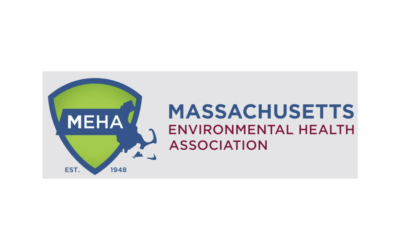Massachusetts has long been a leader in environmental health, consistently striving to protect its natural resources and ensure the well-being of its residents. In recent years, the state has achieved significant successes in this area, thanks to the dedication of environmental health professionals, policymakers, and community advocates. These achievements not only highlight Massachusetts’ commitment to environmental sustainability but also serve as a model for other states to follow.
Advancements in Air Quality Management
One of the most notable successes in Massachusetts’ environmental health efforts is the significant improvement in air quality. The state has implemented stringent regulations to reduce emissions from industrial sources, vehicles, and power plants. As a result, levels of harmful pollutants such as sulfur dioxide, nitrogen oxides, and particulate matter have decreased substantially.
These improvements have had a direct impact on public health. With cleaner air, residents are experiencing lower rates of respiratory issues, such as asthma and chronic obstructive pulmonary disease (COPD). Moreover, the reduction in air pollution has contributed to a decrease in premature deaths related to poor air quality. Massachusetts’ success in this area demonstrates the power of strong environmental policies and serves as a reminder of the importance of continued efforts to maintain and improve air quality.
Clean Energy Initiatives
Massachusetts has also made significant strides in promoting clean energy, further enhancing its environmental health achievements. The state has been a pioneer in adopting renewable energy sources, such as wind and solar power, reducing its reliance on fossil fuels and lowering greenhouse gas emissions.
The Massachusetts Clean Energy Center (MassCEC) has played a crucial role in this success, supporting the growth of the clean energy sector through grants, technical assistance, and workforce development programs. As a result, the state has seen a surge in clean energy jobs and a decrease in carbon emissions, contributing to a healthier environment and a more sustainable economy.
Success in Waste Management and Recycling
Waste management has been another area of success for Massachusetts in recent years. The state has implemented innovative programs to reduce waste, increase recycling, and promote composting. These efforts have led to a significant reduction in the amount of waste sent to landfills and incinerators, mitigating the environmental impact of waste disposal.
One notable initiative is the Massachusetts Department of Environmental Protection’s (MassDEP) “Recycle Smart” program, which provides residents with clear guidelines on what can and cannot be recycled. This program has helped improve recycling rates across the state and reduce contamination in recycling streams, making the process more efficient and effective.
Additionally, Massachusetts has made progress in reducing food waste through the implementation of the Commercial Food Waste Disposal Ban. This regulation requires large food waste generators to divert food waste from landfills, either by donating it or sending it to composting facilities. The ban has not only reduced the environmental impact of food waste but has also supported the state’s goal of cutting greenhouse gas emissions.
Water Quality Protection
Protecting water quality has always been a priority in Massachusetts, and recent successes in this area are worth celebrating. The state has made significant investments in upgrading its water infrastructure, improving wastewater treatment facilities, and protecting drinking water sources.
One of the most significant achievements is the cleanup of the Boston Harbor, which was once one of the most polluted water bodies in the nation. After decades of intensive efforts, the harbor is now a clean and vibrant resource for residents and visitors alike, supporting a variety of recreational activities and marine life.
Massachusetts has also taken proactive measures to address emerging contaminants, such as per- and polyfluoroalkyl substances (PFAS), which pose a threat to water quality. The state has established strict regulations and monitoring programs to limit PFAS contamination in drinking water, ensuring that residents have access to safe and clean water.
Community Engagement and Education
Massachusetts’ success in environmental health would not be possible without the active involvement of its residents. The state has prioritized community engagement and education, empowering individuals to take part in environmental protection efforts. Through public outreach programs, educational campaigns, and community-based initiatives, residents have become more informed and involved in making sustainable choices.
For example, Massachusetts has seen an increase in community gardens, urban agriculture, and green spaces, all of which contribute to environmental health and improve the quality of life in urban areas. These grassroots efforts have fostered a sense of community and environmental stewardship, further enhancing the state’s overall environmental health.
Conclusion
Massachusetts has achieved remarkable success in environmental health, thanks to the collaborative efforts of government agencies, environmental health professionals, and engaged citizens. From improving air and water quality to advancing clean energy and waste management practices, the state’s accomplishments serve as a testament to the power of collective action and strong environmental policies.
As Massachusetts continues to lead the way in environmental health, it sets a high standard for other states and communities to follow. The state’s commitment to protecting public health and the environment ensures a brighter, healthier future for all its residents.



